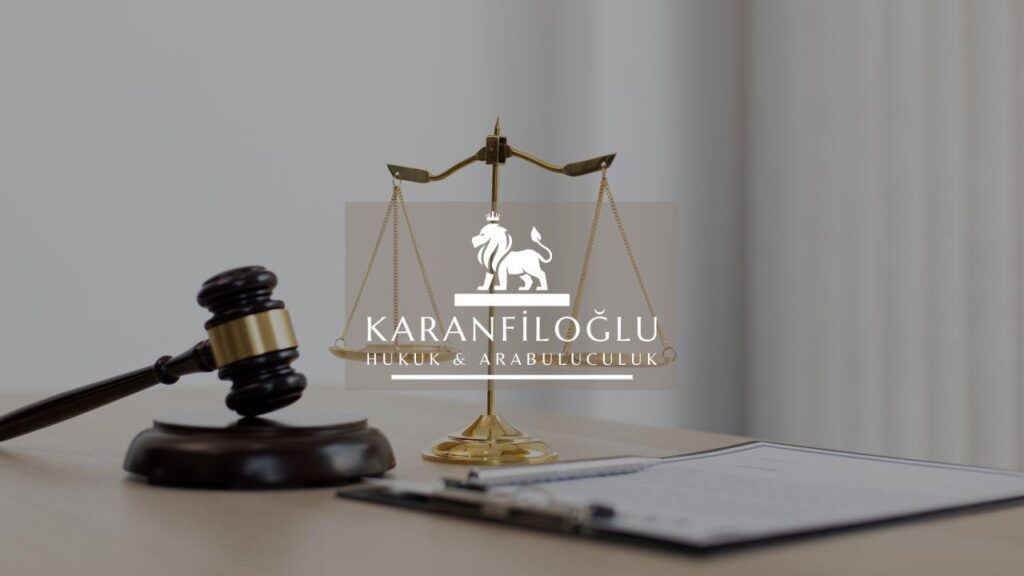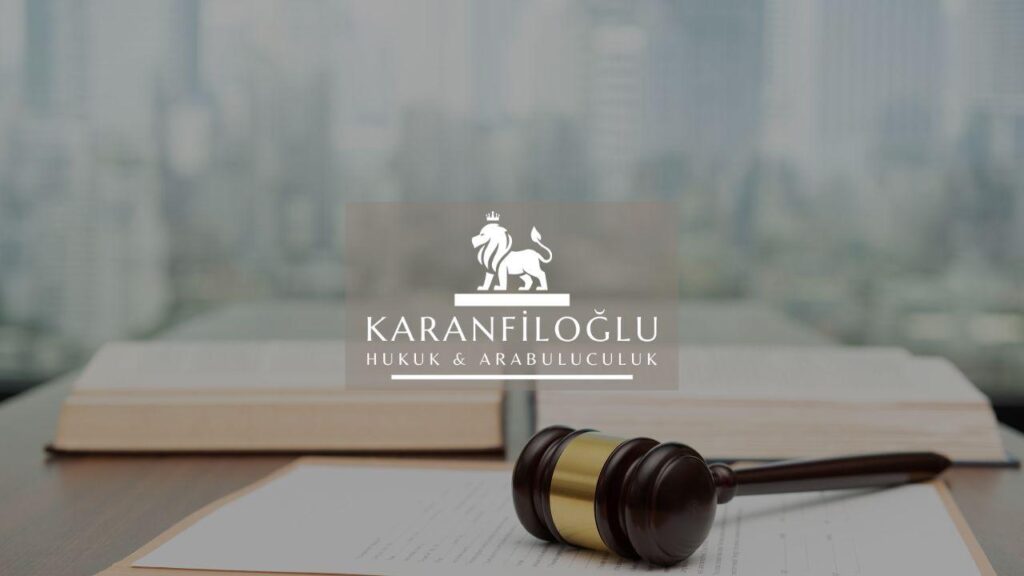In Turkey, internet fraud is a growing concern that demands immediate and professional legal intervention. At Karanfiloglu Law Office, we understand the complexities involved in such matters and aim to provide comprehensive legal assistance. Internet fraud encompasses a range of deceptive activities conducted online, often leading to significant financial and personal losses. The Turkish Penal Code, specifically Articles 157 and 158, criminalizes fraud, including online fraud, with severe penalties for perpetrators. Additionally, the Law on Regulation of Broadcasts via Internet and Prevention of Crimes Committed through Such Broadcasts (Law No. 5651) provides further regulatory measures to combat internet crimes. Navigating this intricate legal landscape requires expertise and a nuanced understanding of both local and international regulations. If you find yourself a victim of internet fraud, timely legal counsel from Karanfiloglu Law Office can help safeguard your rights and seek appropriate remedies.
Understanding the Legal Framework Surrounding Internet Fraud in Turkey
Understanding the legal framework surrounding internet fraud in Turkey is crucial for effectively addressing such offenses. The Turkish Penal Code, under Articles 157 and 158, explicitly defines and penalizes fraud, including online variations, with stringent sentences that can extend up to 10 years in prison, depending on the circumstances. Article 158, in particular, deals with aggravated fraud situations, which may involve exploiting sensitive data or targeting vulnerable individuals. Furthermore, Law No. 5651, known as the Law on Regulation of Broadcasts via Internet and Prevention of Crimes Committed through Such Broadcasts, imposes additional measures aimed at curbing internet-related crimes by granting the Telecommunications Communication Presidency (TİB) the authority to monitor and regulate online activities. This regulation is instrumental in detecting, preventing, and prosecuting internet fraud, making it imperative for victims to be aware of these legal provisions and seek timely legal intervention to protect their interests.
In addition to the provisions in the Turkish Penal Code and Law No. 5651, the Turkish legal system also incorporates mechanisms for victims to seek civil remedies. According to the Turkish Code of Obligations (Law No. 6098), specifically Articles 49 to 58, victims of internet fraud may pursue claims for damages against the perpetrator. This includes compensation for both pecuniary and non-pecuniary damages suffered due to fraudulent activities. Moreover, if the fraudulent acts result in a breach of contract, Article 96 of the Turkish Code of Obligations comes into play, allowing the aggrieved party to claim for damages caused by non-performance or improper performance of contractual duties. Legal recourse can also be initiated under the Consumer Protection Law (Law No. 6502) if the fraud pertains to consumer transactions, providing another layer of protection for victims.
At Karanfiloglu Law Office, we emphasize the importance of gathering and preserving digital evidence to strengthen your case against internet fraud. Under the Criminal Procedure Code (Law No. 5271), relevant evidence must be appropriately collected and documented to ensure its admissibility in court. Digital forensics plays a vital role here, from tracing IP addresses and securing emails to preserving copies of fraudulent websites and social media interactions. Furthermore, collaborating with experts in cybercrime and IT can significantly bolster the evidentiary process. It is also crucial to report the fraud to proper authorities, including the Cybercrime Unit of the Turkish National Police, to initiate criminal investigations promptly. Our experienced legal team at Karanfiloglu Law Office is prepared to guide you through each step, ensuring that your rights are protected and that you stand a strong chance of holding the fraudsters accountable.
Steps to Take Immediately After Falling Victim to Internet Fraud
The first step you should take immediately after realizing you are a victim of internet fraud is to report the incident to the relevant authorities. In Turkey, this means filing a complaint with the Cyber Crimes Unit of the Turkish National Police as well as notifying the Information and Communication Technologies Authority (ICTA). Prompt reporting is crucial, as outlined in Article 158 of the Turkish Penal Code, because early notification can significantly enhance the chances of apprehending the perpetrator and recovering any lost assets. Additionally, preserve all evidence related to the fraud, including emails, screenshots, and financial transaction records, as these will be essential for both law enforcement and your legal counsel at Karanfiloglu Law Office to build a strong case.
Once you have reported the fraud and preserved crucial evidence, the next critical step is to secure your digital and financial accounts to prevent further damage. Change the passwords to your email, bank accounts, and any other online services you use, prioritizing those affected by the fraud. Utilize multi-factor authentication wherever possible to add an extra layer of security. In accordance with the Law on Protection of Personal Data (Law No. 6698), you should also notify your financial institutions and request them to monitor unusual activities and potentially freeze your accounts if necessary. It is also advisable to contact a legal professional specializing in cybercrime, such as Karanfiloglu Law Office, to guide you through the process of securing your personal data and pursuing legal action against the fraudster.
Finally, it is important to stay informed and vigilant to prevent future incidents of internet fraud. Education is key: keep yourself updated on the latest cyber threats and scams through reputable sources such as the Cyber Threats Bulletin issued by the Turkish National Police. Participate in awareness programs and workshops that focus on internet security best practices. Familiarize yourself with the provisions of the Law on Electronic Commerce (Law No. 6563) to understand your rights and obligations concerning online transactions. Additionally, ensure that your software and security systems are always up-to-date to defend against potential cyber-attacks. Engaging legal support, like Karanfiloglu Law Office, not only aids in immediate recovery but also equips you with the knowledge and resources to fortify your defenses against future online fraud attempts.
How a Lawyer Can Assist You in Handling Internet Fraud Cases in Turkey
Engaging a lawyer when dealing with internet fraud in Turkey is crucial for effectively navigating the legal complexities that arise in such cases. From the initial stages, a lawyer can assist in collecting and preserving digital evidence, an essential step given that Articles 134 and 135 of the Turkish Penal Code address the unauthorized capture and dissemination of personal data. Legal professionals at Karanfiloglu Law Office are adept at working with forensic experts to ensure that all pertinent electronic information is properly documented and can stand up in court. Additionally, we can guide you through the procedural aspects of filing a criminal complaint, as outlined in Article 158 of the Criminal Procedure Code, which requires an understanding of specific legal terminologies and criteria. Your lawyer can also liaise with law enforcement agencies on your behalf, ensuring that all necessary steps are taken to expedite the investigation and increase the likelihood of a successful resolution.
Another critical role a lawyer plays is in representing you during the prosecution phase. Your attorney will meticulously review all collected evidence to ensure its admissibility, contest any that might be improperly obtained, and prepare a robust defense against potential counterclaims. Pursuant to Article 175 of the Turkish Criminal Procedure Code, the lawyer can request the examination of specific witnesses or demand certain investigative actions, enhancing the thoroughness of the trial process. Furthermore, legal experts at Karanfiloglu Law Office have the proficiency to negotiate compensatory claims on your behalf, whether in criminal court or through separate civil proceedings. By leveraging the provisions of Articles 25 and 26 of the Law on Intellectual and Artistic Works (Law No. 5846), which also cover some aspects of cybercrimes, your lawyer can help secure monetary restitution for any financial damages incurred due to the fraud. Acting swiftly and decisively with legal representation can be pivotal in achieving a satisfactory outcome.
Lastly, a seasoned lawyer from Karanfiloglu Law Office can provide invaluable post-judgment support, ensuring that the court’s decisions are effectively enforced and that you receive any awarded compensation without undue delay. This includes working with enforcement offices and utilizing provisions under the Execution and Bankruptcy Law (Law No. 2004), which details the steps required for the enforcement of monetary judgments. Additionally, your lawyer can also offer guidance on how to mitigate future risks of internet fraud, drawing upon both national regulations and international best practices. Beyond the immediate legal remedies, we can assist in implementing robust cybersecurity measures, advise on data protection policies to comply with the Turkish Personal Data Protection Law (Law No. 6698), and offer ongoing legal support to navigate any subsequent challenges. By securing legal representation from Karanfiloglu Law Office, clients can robustly protect their interests and foster a more secure online environment.
Disclaimer: This article is for general informational purposes only and you are strongly advised to consult a legal professional to evaluate your personal situation. No liability is accepted that may arise from the use of the information in this article.







